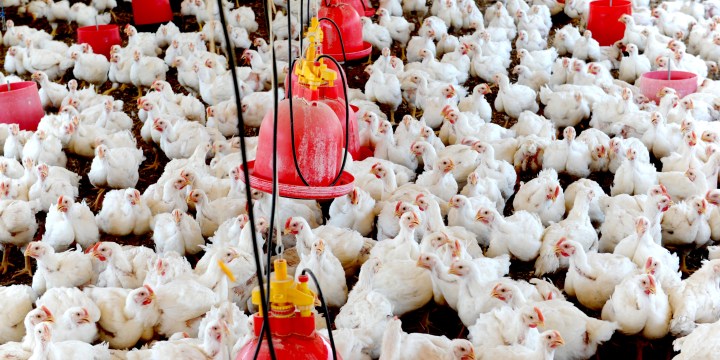POULTRY
Cheap as chips? Not for long – importers’ body says chicken prices are about to rise sharply

The bird flu outbreak and the government’s foot-dragging on import tariff rebates are a disaster for consumers, says the Association for Meat Importers and Exporters.
If you spot well-priced chicken products, now would be a great time to buy in bulk and freeze because chicken prices are on the way up, warns the Association for Meat Importers and Exporters.
The association’s CEO, Paul Matthew, says they are expecting a sharp rise in poultry prices over the upcoming festive season and into the new year, due to shortages caused by the Highly Pathogenic Avian Influenza (bird flu) outbreak and the government’s delay in introducing an import tariff rebate.
“The price increases are inescapable unless the government takes action now. To address the poultry shortages caused by the bird flu outbreak, the local poultry industry has imported 83 million fertilised eggs. Given the fact that they have been imported on an urgent basis, they are coming in at three times the price of a locally grown day-old chick.”
On 15 November, the Department of Agriculture, Land Reform and Rural Development announced that egg stock levels were replenishing “steadily”, saying there was no need for panic buying. It said Brazil, the US, Argentina and other countries had been exporting eggs to South Africa for “quite some time” and they were currently processing import permit applications from other countries.
“As a department, we don’t dictate which countries should make business sense for South African retailers to import eggs from, but only ensure that biosecurity risk assessments are conducted when importers apply for import permits.
“It does not matter to us which country importers apply to import eggs from… as long as we are satisfied with biosecurity matters in exporting countries irrespective of whether that country is Kenya or the USA. This is done so as to prevent the introduction of diseases to our shores.”
It said the bird flu outbreak was under control and that 70% of farms that were not infected were continuing to produce eggs and chickens.
“Since the egg production cycle is not too long, we expect the situation to normalise early next year. We will continue to import more eggs should the situation not improve.”
In total, nine million fertilised eggs had been imported, as well as 37,802 tons of day-old chicks; 62 tons of egg products, and 30,986 tons of poultry meat.
“We have increased fertilised eggs from 1.9 million to nine million in less than one month. These eggs will be chickens in less (than four) months.”
Since the local poultry industry imported fertilised eggs on an urgent basis, it was three times more expensive than for a locally grown day-old chick – costs that will be passed on to consumers in the near future, Matthew says.
He says chicken remains the most affordable and essential source of protein especially for poor consumers.
Last week, Stats SA announced that food inflation hit 8.8% in October, from 8% in September.
The Pietermaritzburg Economic Justice and Social Dignity Group’s Household Affordability Index for October shows that the average cost of the foods prioritised and bought first in the household food basket had risen by R39.36 (1.4%) from R2,846 in September 2023 to R2,885.37 in October 2023, with the average cost of the foods rising by R253.40 (9.6%) year-on-year.
The price of eggs went up by 19% between September and October 2023, and 36% YoY. Chicken feet and gizzards went up by 8% YoY and chicken livers by 14%.
Poultry prices need to be kept down, says Matthew, citing the work of Prof Lawrence Edwards, from the Policy Research in International Services and Manufacturing Unit at UCT’s School of Economics, who argues that a temporary rebate on poultry is pro-poor and that even with a rebate, demand for domestic chicken will exceed local supply, which will have no impact on the sales of domestic products.
In an op-ed in Daily Maverick, Edwards and Jing Chien, the research coordinator at the research unit, argued that for every 10% increase in the aggregate import price from duties, there was a 4.8% increase in the consumer price of frozen chicken.
They said that chicken was the primary source of protein for the poor, with the poorer 40% spending 13% of their food expenditure and 64% of meat expenditure on chicken.
Import duties are an extremely regressive form of tax because it affects consumers directly, Matthew says.
“It is high time that the entire narrative on chicken availability and imports, as well as tariffs, is changed. Where there is legitimate dumping, it must be addressed, but extreme import tariffs on all imported chicken is not the answer.
“Imports are a critical and necessary measure to ensure the country has sufficient supplies of vital protein to feed the nation, and to plug the ongoing gaps in supply.” DM
















 Become an Insider
Become an Insider
catch 22 – buy in bulk and freeze so it can spoil when eskom fails to supply power to keep said feezer operational . . .